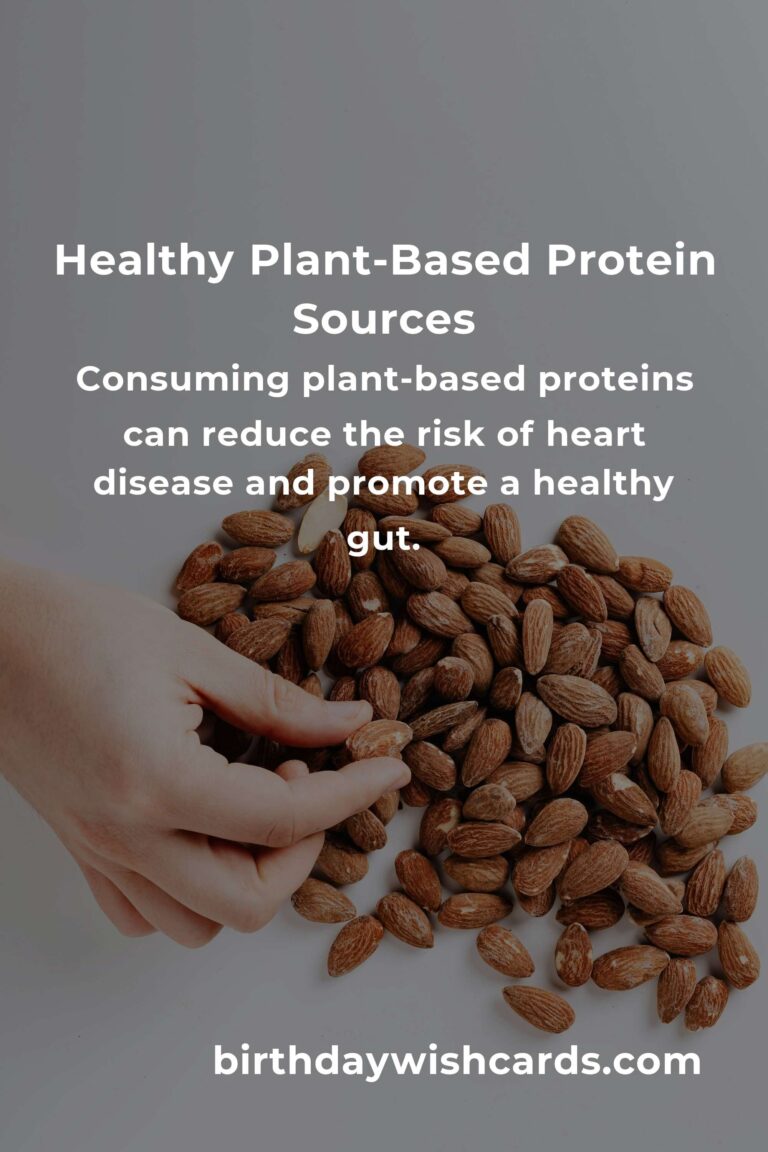
In recent years, plant-based diets have gained immense popularity, and for good reason. As young adults increasingly seek healthier lifestyles, understanding the benefits of plant-based protein becomes crucial. This comprehensive guide dives into the world of plant-based protein, highlighting its benefits, sources, and how it can support the health and fitness goals of young adults.
What is Plant-Based Protein?
Plant-based protein refers to protein that is derived from plants. Unlike animal proteins, which come from meat, dairy, and eggs, plant-based proteins are sourced from legumes, nuts, seeds, grains, and vegetables. Common sources include lentils, chickpeas, quinoa, and tofu. These proteins are not only rich in essential amino acids but also come packed with other nutrients that support overall health.
Benefits of Plant-Based Protein
There are numerous benefits associated with consuming plant-based proteins, particularly for young adults. Firstly, they are typically lower in saturated fats and cholesterol compared to animal proteins, which can reduce the risk of heart disease. Additionally, plant-based proteins are often accompanied by fiber, aiding in digestion and promoting a healthy gut. Moreover, these proteins provide essential vitamins and minerals, such as iron, magnesium, and zinc, which are vital for energy and cognitive function.
Top Sources of Plant-Based Protein
Understanding where to find plant-based protein is key to incorporating it into your diet effectively. Here are some top sources:
- Lentils: These legumes are protein powerhouses, offering about 18 grams of protein per cooked cup.
- Chickpeas: Also known as garbanzo beans, chickpeas provide around 15 grams of protein per cooked cup.
- Quinoa: A complete protein source, quinoa offers 8 grams of protein per cooked cup and is rich in fiber.
- Tofu and Tempeh: Made from soybeans, these are versatile protein sources, with tofu providing about 10 grams per half-cup and tempeh offering approximately 15 grams per half-cup.
- Nuts and Seeds: Almonds, chia seeds, and hemp seeds are excellent sources, packed with protein and healthy fats.
Incorporating Plant-Based Protein into Your Diet
Incorporating plant-based protein into your diet can be both simple and delicious. Start by replacing meat with plant-based alternatives in your favorite dishes. For example, use lentils in place of ground beef for tacos or add chickpeas to salads for an extra protein boost. Smoothies are also a great way to incorporate plant-based protein powders, such as pea or hemp protein, into your daily routine.
Challenges and Solutions
While there are many benefits, transitioning to a plant-based diet can present challenges, particularly in ensuring adequate protein intake. To overcome this, young adults should focus on variety and balance. Consuming a diverse range of plant-based foods ensures that you get all essential amino acids. Meal planning and preparation can also help maintain a balanced diet, making it easier to meet daily nutritional needs.
Conclusion
Plant-based proteins offer a multitude of benefits for young adults, from improved heart health to supporting fitness goals. By understanding the sources and methods of incorporating these proteins into their diets, young adults can enjoy a healthier lifestyle. Embracing plant-based protein is not just a trend but a sustainable approach to nutrition that can benefit individuals and the planet alike.
Plant-based protein is protein derived from plants, such as legumes, nuts, seeds, grains, and vegetables.
Consuming plant-based proteins can reduce the risk of heart disease and promote a healthy gut.
Top sources of plant-based protein include lentils, chickpeas, quinoa, tofu, tempeh, nuts, and seeds.
Incorporating plant-based protein into your diet can be simple and delicious by replacing meat with plant-based alternatives.
Challenges in transitioning to a plant-based diet can be overcome by focusing on variety and balance.
#PlantBasedProtein #YoungAdults #HealthyLiving #VeganDiet #Nutrition

